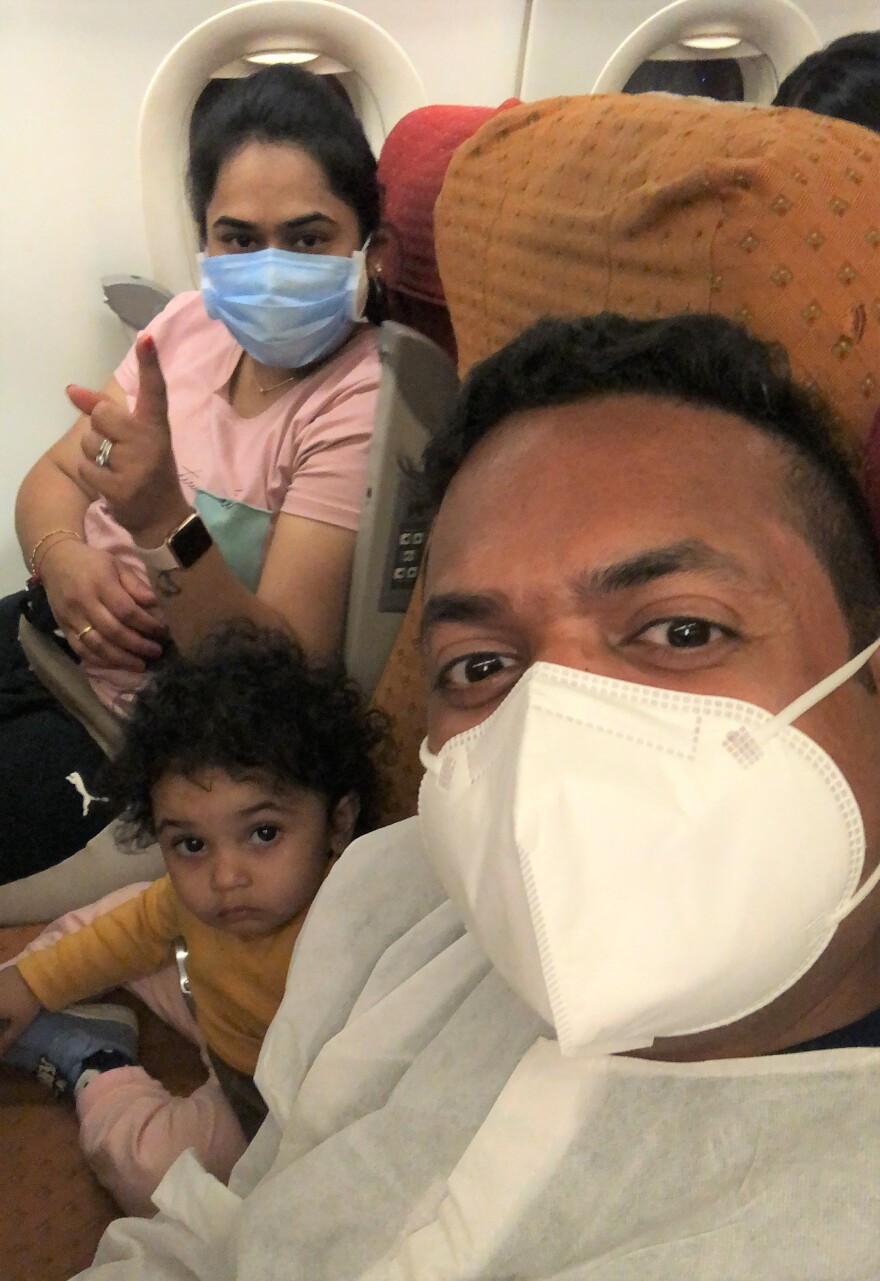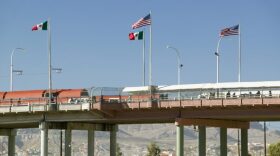Dhaval Babu couldn’t believe it when his plane touched down in Texas last month. After nearly 15 months away from his apartment, his job and his friends, the software engineer and his family were back home in San Antonio.
“It was a sigh of relief when I landed back in San Antonio.” Babu said. “I was grateful to this country to let me back in with my livelihood after this many months.”
Babu, 33, is one of many H1-B visa holders — visas reserved for workers with specific skills — who ended up stuck overseas during the pandemic. COVID-19 forced American consulates in India and around the world to close. Then, the Trump Administration implemented a temporary travel ban, which kept certain employment-based visa holders like Dhaval from entering the country.
That ban expired at the end of March and Babu was finally allowed to return to the U.S. But relief quickly turned to worry. Babu’s wife contracted COVID-19 — possibly during their travel — and shortly after, Babu also tested positive. Back in India, his dad got it too.
“My dad is not a young person. He’s 67 years old and he has a diabetes, high blood pressure situation,” Babu said. “So that stress is always there, thinking about him, talking to him day and night, whether he feels okay, whether everything is taken care of.”
India has been swept by a devastating second wave of COVID-19 infections. Earlier this month, India’s government reported nearly 400,000 new cases in a single day, and some experts say cases have been underreported.
On April 30, the Biden administration announced new travel restrictions for India in response to the surge in cases there. The temporary travel ban, which took effect May 4, affects certain non-U.S. citizens, including temporary visa workers.
Babu made it back to Texas during a narrow window, but now thousands of others remain in limbo under the new travel restriction.

Babu said he’s worried sick about the people of India, including his family. He fears it could have been much worse for his dad, who had actually been vaccinated when he was diagnosed with COVID-19.
“So before his immunity could build up perfectly fine, after [the] second shot, he got the COVID,” Babu said. “So when he went to the doctors, he did all the bloodwork, they said, ‘It’s amazingly good that you have got the COVID vaccine. That could help you with this.’ ”
Doctors were concerned about his dad’s lungs, so they prescribed him injections of the antiviral medication Remdesivir. Babu said he was glad he encouraged his parents to get the vaccine while he stayed with them in India.
He and his wife traveled there a year ago in January to visit his parents, who had not yet met their newborn. During their stay, Babu worked from there. But that proved challenging with the nearly 12 hour time difference between India and San Antonio.
The experience was also a financial strain for the family. Unsure of when they would be able to return, Babu continued to pay rent on their San Antonio apartment. He ended up paying for 8 months worth of rent before finally asking friends to pack up their belongings and move them to storage.
During this time, Babu’s wife Maitri, who worked as a process analyst, lost her job.
At the time, Babu said he felt trapped.
"It feels like there is no light at the end of the tunnel," he told KERA last year. "It seems like the more I walk into the blank tunnel, the more there is to walk. I guess I don't see a light at this point."
Now that he’s back in San Antonio, Babu said he checks in regularly with his dad.
“I wake up in the morning and I call my dad like, ‘Hey, Dad, how you feeling? How’d your session go today? How was your injection? Everything ok? You need any medicine? Do you need anything? Do you need any money?’” he said.
Besides worrying about his father, Babu had his own case of COVID-19 to contend with. One Sunday, his wife took him to the hospital emergency room because he was experiencing breathing problems. He stayed in the hospital for 24 hours.
Babu said he and his wife have now recovered. His dad is much better too, but his energy levels remain low.
For now, Babu said his mind is still on India, and hopes the rest of the world will spare a thought for the people who live there.
“Try and pray for those people who are having issues” he said. “I would keep them in my prayers all the time and support if you can any nonprofit organization that you know of because India needs it right now.”
Got a tip? Email Stella M. Chávez at schavez@kera.org. You can follow Stella on Twitter @stellamchavez.
KERA News is made possible through the generosity of our members. If you find this reporting valuable, consider making a tax-deductible gifttoday. Thank you.





